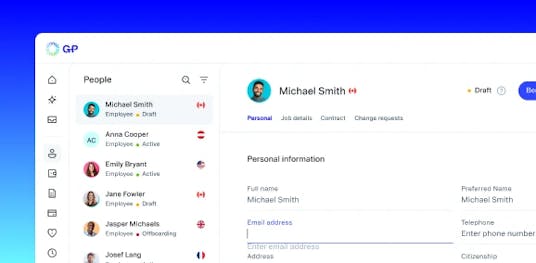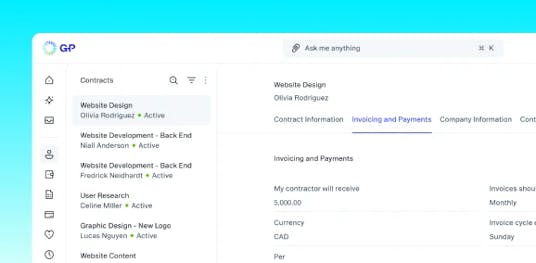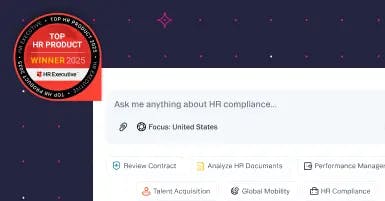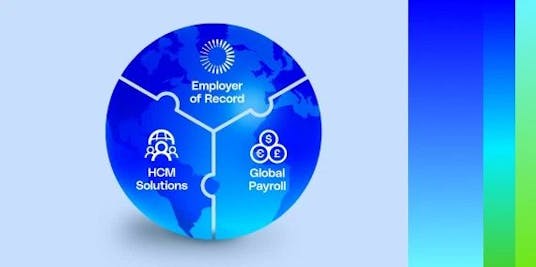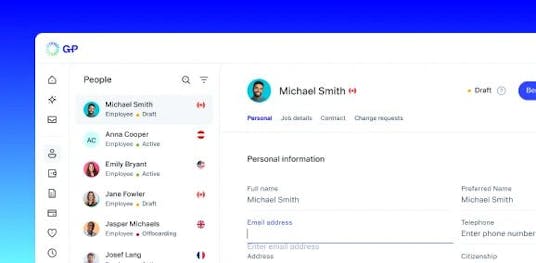In order to start hiring employees in Denmark, you might consider setting up a subsidiary. While subsidiary laws may seem easy to navigate, the time and investment commitment of setting up a subsidiary may not be the best option for your growing business. Read on to learn more about how to set up a Denmark subsidiary and alternative options for expanding your business.
How to establish a Denmark subsidiary
There are 2 main corporation options in Denmark — an Aktieselskab (A/S) or Anpartsselskab (ApS). A/S is similar to a public limited liability company, while ApS is the equivalent of a private limited liability company. Both are relatively quick to set up. However, most companies choose to set up an ApS.
Deciding between the 2 options depends on the size of your company and your expected activity level in Denmark. A company may choose A/S if it wants the subsidiary to be listed on the Copenhagen Stock Exchange. Setting up this type of company takes more time and resources.
Small and mid-sized companies usually choose ApS. These are typically subsidiaries for multinational companies.
For a Danish company to be valid, it needs to be registered in the Danish Commercial and Companies Agency. There are some necessary steps required to open a subsidiary, such as:
- The articles of association need to be filed before the Danish Commercial and Company Agency, which will include details regarding the subscribed capital.
- The determination of the contribution of each shareholder should be stated.
- Companies must register in the Commercial Registry.
- Investors must submit an application for registering the workers for the employment insurance.
It is also mandatory to open a bank account and set up a payroll account.
Denmark subsidiary laws
Denmark subsidiary laws differ based on which type of company you choose.
A/S companies must invest a minimum of DKK 500,000. The investor does not have to pay the full registered share capital, but the paid-up capital must equal at least 25% of the registered share capital. Each investors’ liability is restricted to the value of the shares they purchase.
The law requires A/S companies to utilize a 2-tier supervisory system made up of a Board of Directors and an Executive Board. A minimum of 3 people must be on the Board of Directors, and 1 person — typically the CEO — must sit on the Executive Board. Directors do not have to live in Denmark.
ApS companies must invest a minimum of DKK 40,000, and they have the same investment rules as an A/S company. If you choose this Denmark subsidiary option, you will only need a single shareholder from any nationality. Plus, ApS companies can utilize a 1- or 2-tier system depending on their needs.
Both A/S and ApS companies must submit annual financial statements.
Benefits of establishing a Denmark subsidiary
One benefit is that it is easier to open a subsidiary in Denmark compared to other countries. Other advantages include:
- Companies can incorporate online and start operations within a few hours.
- Management does not have any residency requirements.
- You can hold shareholder’s and board meetings electronically.
- You won’t need any notarial deeds.
- Language requirements are flexible.
- You can distribute dividends on an interim basis.
- Denmark company law is the same as current EU legislation.
- There are favorable tax climates.
Other important considerations
During the Denmark subsidiary setup process, you will need a digital signature called a NemID. This signature allows business employees to register electronically. You’ll also need workers’ insurance as well as a bank account where you can deposit your investment capital.
Before registering your company on your own, it’s important to realize you will also need a significant amount of time and budget to travel back and forth to Denmark during the process. By working with G-P, you can avoid unneeded travel and expenses.
Enter new markets with G-P — no new entities required.
Beat the competition and enter new markets in minutes, not months, with G-P. We’ve paired our industry-leading team of in-region HR and legal experts with our #1 Global Growth Platform™ to help you hire compliantly in 180+ countries, eliminating the need to set up local entities or subsidiaries.
Get in touch today to learn more about how we can streamline the global growth process.
